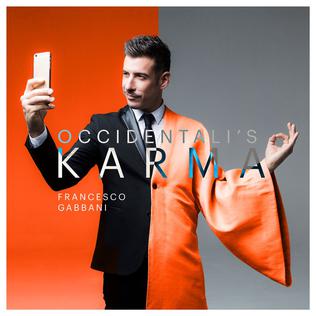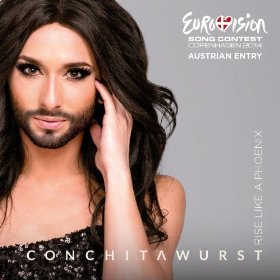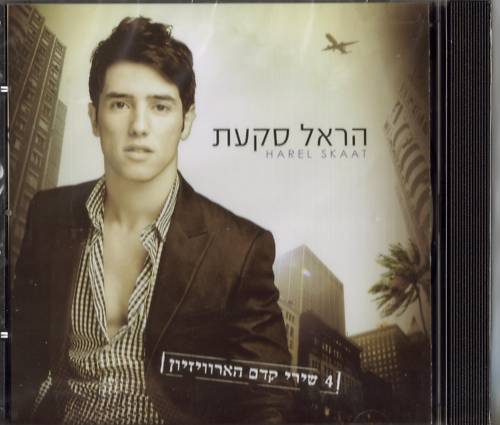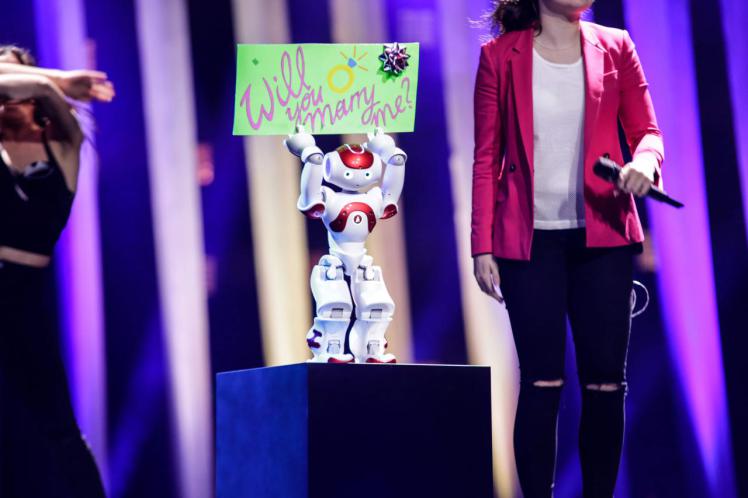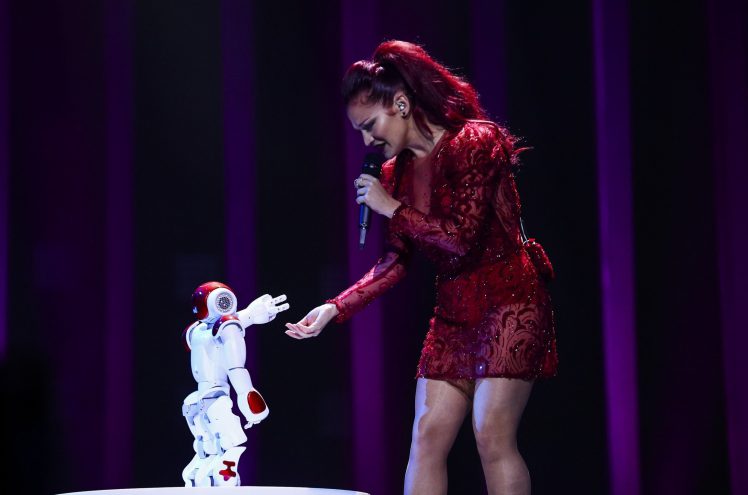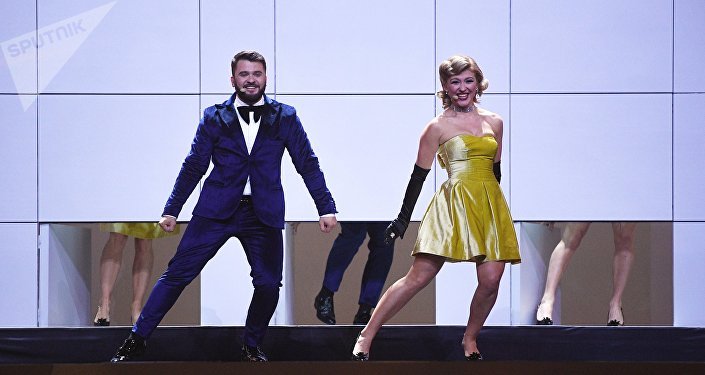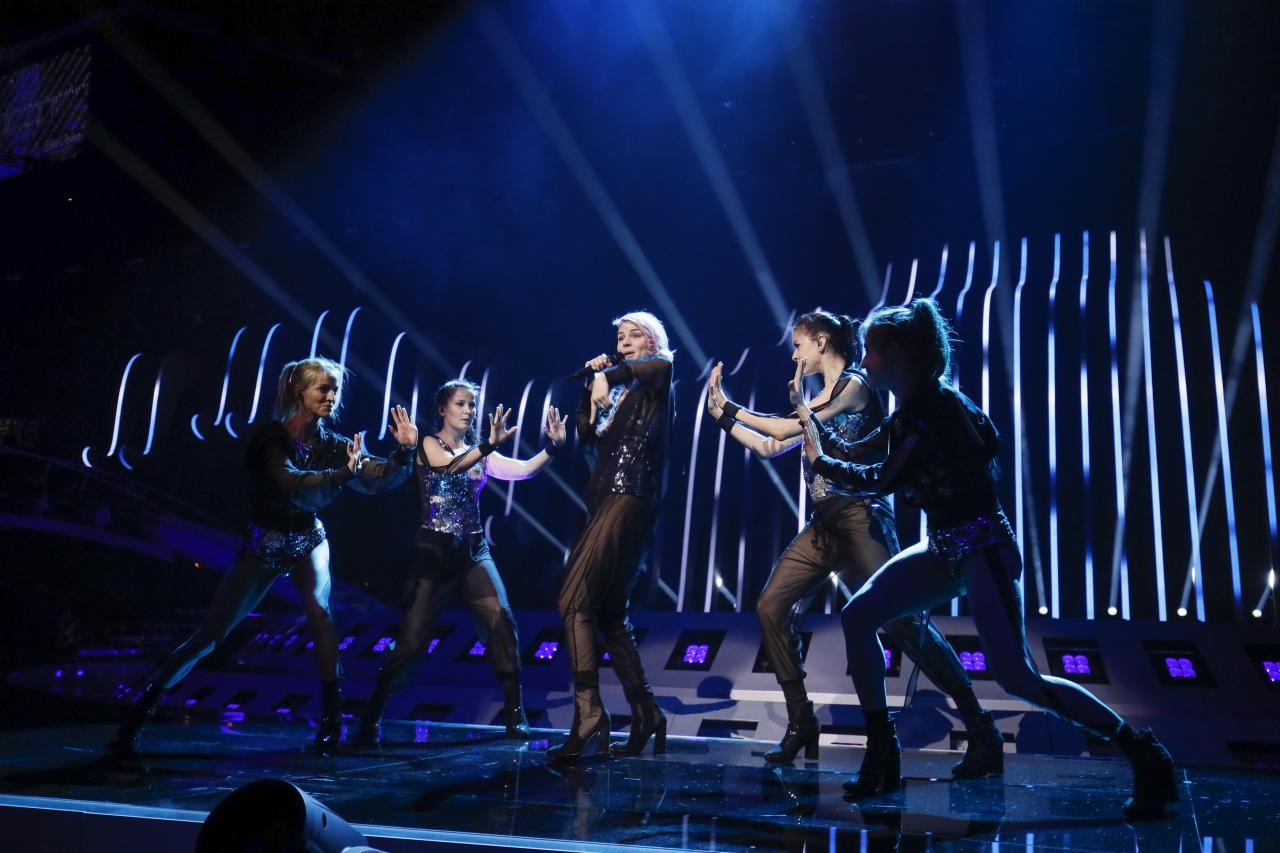Sweden kicks off its road to TLV with a tribute to Israel. And it's stunning.
It's not a proper Eurovision season without six weeks of the most watched national selection in Europe (and Australia). We are obviously talking about Sweden's Melodifestivalen show produced by broadcaster SVT. The road to Tel Aviv kicked off last night in Gothenburg with the first seven acts biding to wave the Swedish flag in Tel Aviv. But for many fans, the real stars of the night were the hosts who stole the show during the interval act with a stunning tribute to host country Israel and its four Eurovision winners.
You chose: your 2018 most favorite memory is...
Kapara Ale’yah: Netta just broke a new all time Eurovision record!
Eurovision 2018: Public vs. Jury Votes
The Eurovision Broadcast Union has revealed the full split results of the Eurovision Song Contest 2018. As the rule goes, full detailed voting results for the semi-finals will not be revealed until after the Grand Final due to potential influence on people's voting patterns. Now the EBU has revealed both the complete details for the semi-final voting and slipt count of grand final scores.
Voting in the Grand Final
As usual, this year the contest continued using the 50/50 system jury votes and televotes collected in each participating country. Viewers were able to vote or any entry except their own based on their location.
Combined Results:
- Israel: 529 points
- Cyprus: 436 points
- Austria: 342 points
- Germany: 340 points
- Italy: 308 points
- Czech Republic: 281 points
- Sweden: 274 points
- Estonia: 245 points
- Denmark: 226 points
- Moldova: 209 points
- Albania: 184 points
- Lithuania: 181 points
- France: 173 points
- Bulgaria: 166 points
- Norway: 144 points
- Ireland: 136 points
- Ukraine: 130 points
- The Netherlands: 121 points
- Serbia: 113 points
- Australia: 99 points
- Hungary: 93 points
- Slovenia: 64 points
- Spain: 61 points
- United Kingdom: 48 points
- Finland: 46 points
- Portugal: 39 points
Jury Votes:
- Austria: 271 points
- Sweden: 253 points
- Israel: 212 points
- Germany: 204 points
- Cyprus: 183 points
- Estonia: 143 points
- Albania: 126 points
- France: 114 points
- Bulgaria: 100 points
- Moldova: 94 points
- Lithuania: 90 points
- Australia: 90 points
- The Netherlands: 89 points
- Ireland: 74 points
- Czech Republic: 66 points
- Norway: 60 points
- Italy: 59 points
- Spain: 43 points
- Slovenia: 41 points
- Serbia: 38 points
- Denmark: 38 points
- Hungary: 28 points
- United Kingdom: 23 points
- Finland: 23 points
- Portugal: 21 points
- Ukraine: 11 points
Public Votes:
- Israel: 317 points
- Cyprus: 253 points
- Italy: 249 points
- Czech Republic: 215 points
- Denmark: 188 points
- Germany: 136 points
- Ukraine: 119 points
- Moldova: 115 points
- Estonia: 102 points
- Lithuania: 91 points
- Norway: 84 points
- Serbia: 75 points
- Austria: 71 points
- Bulgaria: 66 points
- Hungary: 65 points
- Ireland: 62 points
- France: 59 points
- Albania: 58 points
- The Netherlands: 32 points
- United Kingdom: 25 points
- Finland: 23 points
- Slovenia: 23 points
- Sweden: 21 points
- Spain: 18 points
- Portugal: 18 points
- Australia: 9 points
Top Interval Acts, Attempts to Live Up to Riverdance
Interval acts are little performances performed by the hosting county's famous musicians, the masters of ceremony, or by previous year's winner. Here's a selection of fun interval acts from the past 10 years.
2009: Fuerza Bruta performs in Russia
While not Russian, or actually little to do with the hosting country, Russia presented us Fuerza Bruta. A worldwide famous postmodern theatre show originating from Buenos Aires was featured in 2009. It was around the time when the show was performed in Moscow, which wasn't necessarily unique since it's been touring around the world since 2003 and an off-Broadway certified version of it has been permanently in New York City since 2007, it was nonetheless a glorious spectacle.
2016: Justin Timberlake's first televised performance of "Can't Stop the Feeling!"
Europeans got their first exclusive preview of this new number 1 hit a few days before the rest of the world. Timberlake gave his first televised performance of "Can't Stop the Feeling!" during the interval act of the Eurovision Song Contest 2016 grand final.
2012: Eurovision Medley Performance by Past Winners
It's quite a tradition for Eurovision hosting countries to pay tribute to the most successful Eurovision winners, in 2012, the organizers decided to bring together five former winners to performer their songs by using the accompaniment of local traditional instruments.
2016: No, Still, This is How You Write a Song
In 2016 we learned what's the secret to winning the Eurovision Song Contest. Bare with us, dress to impress and don't look back!
2016: Choreography Illustrating the Journey to Europe
In 2016, the organizers weren't only praised for an excellent choice of MCs, but in addition to overly entertaining interval acts they also brought focus to the importance of immigrant lives and the ongoing European refugee crisis.
2015: Conchita Wurst brings Eurovision back to Classics
The 2015 Eurovision Song Contest brought back some classical elements to Eurovision while still embracing modern elements in terms of design. The orchestra returned for the opening, as well as beautiful gowns and dresses, while also being forwarding thinking by building a fully recyclable stage and using four women as MCs, including the last year's winner Conchita Wurst. The opening truly brought us to tears.
1994: You can try, but you will never beat the Riverdance
Ah, that's the classic, the best of the best of interval acts. The one that we will always fail to live up to, the good old Riverdance. Our inspiration and muse of interval acts.
Top 5 Songs That Won Marcel Bezençon Awards
Marcel Bezençon Awards, named after the founder of the Eurovision Song Contest, are special awards given to outstanding acts based on press, artistic and compositional success. Awards were first handed out in 2002 in Tallinn. Initiated by Christer Björkman (Sweden's representative in Eurovision, 1992) and Richard Herrey (member of the Herreys, 1984 Eurovision winner from Sweden), awards are granted in three categories - the Press Award, Artistic Award, and Composer Award. Awards are traditionally handed out backstage, shortly before the Grand Final. These are the top 5 songs ever to receive one or multiple awards.
Occidentali's Karma
Press Award - Italy 2017
Italy's entry to Eurovision 2017 needs little introduction. With over 200 million views on Youtube this song became a mega-hit across Europe. The catchy melody, humorous lyrics, and naked ape dancing made us all scream "La scimmia nuda balla Occidentali's Karma" Panta rei, and taking you Francesco Gabbani for enlightening us with youre pure joy and genuine energy.
Rise like a Phoenix
Press Award - Austria 2014
Another song that the world simply couldn't ignore. Little known, but in addition to the overall victory of Eurovision 2014, the Austrian singer Conchita Wurst was also granted the press award making her the diva of the night and bring an important message of tolerance and acceptance to millions of viewers.
Calm After the Storm
Artistic Award | Composer Award - The Netherlands 2014
As if landing a second place at the Eurovision Song Contest isn't good enough, The Common Linnets representing the Netherlands was praised for it's artistic quality and excellent composition. Despite a mellow and soothing melody, it reached number 9 in the UK singles chart, and first in many other countries, like Belgium, Iceland, and the Netherlands.
Euphoria
Artistic Award | Composer Award - Sweden 2012
Without a doubt the most successful recent song to come out of the contest Euphoria was also praised for it's artistic quality. After winning the whole contest by a landslide of votes, it received two Marcel Bezençon Awards - Artistic, and Composer Awards. The song was received positively across the world ranking high not only across the European market, but also in Australia. The song peaked at the top spot in several countries including Austria, Belgium, Denmark, Estonia, Finland, Germany, Iceland, Greece, Hungary, Ireland, Luxembourg, Norway, Poland, Russia, Slovakia, Sweden, and Switzerland. It spent 15 consecutive weeks in the UK Top 100, making it the most successful Eurovision song in history, ahead of "Waterloo" by ABBA, and "I Can" by Blue. The single sold over 2 million copies worldwide.
Milim
Press Award | Artistic Award | Composer Award - Israel 2010
While the Israel's entry didn't reach top 10 in the grand final, it managed to attract attention from pretty much everyone else involved winning the press, artistic and composer award in 2010. The song was welcomed by polarizing opinions from people calling it dramatic and beautiful, or up front boring. That did not stop the powerful ballad to reaching everyone's hearts. In an interview the singer Harel Skaat described it as a song about "separation, of any kind. Separation of lovers, of a family. In Hewbre, 'Milim" means words. The words are the most memorable thing we have after a separation, words are very powerful and the are engraved in our minds and hearts". This song will definitely stay in our hearts for a long time.
Let us know what do you think of our selection by sharing online and letting us know your favorites.
#Shook, Eurovision Week's Shocking Moments
The Eurovision Song Contest 2016 was filled with various shocking moments, some intended by its organizers, some spontaneous and unexpected. The hosting country definitely had some entertaining moments up their sleeves such as various interval acts showcasing the merge of traditional music and dance combined with modern interpretation and technology, or the pre-recorded sequence giving a humorous looking into the life of the Portuguese. Here are some of the most shocking moments from this year's show.
Russia failed to qualify to the Grand Final
Within the past two years, Russia has been making headlines. Last year due to the withdrawal from the contest and this year failing to qualify to the grand final. In 2017, Julia Samoylova was selected to represent Russia at the Eurovision Song Contest in Ukraine but later the national delegation withdrew from the contest. The singer was banned from entering the hosting country, Ukraine, but was allowed to perform through various digital and live broadcasted forms. The national delegation decided to withdraw and instead send begin preparing for a new entry next year. This year the Russian delegation sent last year's winner to the Eurovision with a new song "I Won't Break", but surprising to everyone failed to gain enough points. This was the first time since the introduction of semi-finals in 2004, that Russia failed to qualify.
Funny and odd gimmicks
Due to the hosting country's decision to not use LED screens as part of the stage design, many countries began to creatively approach their performances. This resulted in various props being used and unseen choreography. Some countries handled it well, others received a more critical response, but one of the most memorable moments included San Marino's little robots, Moldova's Punch-and-Judy-style modular background wall, Ukraine's staircase in flames, and Slovenia's intentional technical glitch.
Chinese broadcaster censors Eurovision
Blurring LGBT flags from the audience, and modifying transmissions in two performances to hide tattoos and LGBT dancers.
In 2014, officially for the first time, the Eurovision Song Contest was brought to the Chinese viewers. The same year an Austrian recording artist and drag queen Conchita Wurst won the contest, speaking out for the LGBT rights, and becoming the most Googled person of the year.
This year marked a much more controversial year due to censorship imposed by the Chinese broadcaster Mango TV. During the first semi-final the China's top TV operator, a member of the Hunan Television group, edited the transmission of the semi-final to remove gay elements. Ireland's performance was transmissions were modified in order to hide the two men dancing. A similar tactic was used during the Albanian performance, to hide body tattoos. Finally, the broadcaster also blurred out rainbow flags, symbols of LGBT pride, and other images of performers with tattoos.
European Broadcasting Union canceled the contract with China’s Mango TV
After various censorship during the broadcasting of the first semi-final, the European Broadcast Union released a statement canceling the contract to screen the grand final of Eurovision Song Contest 2018. According to the EBU, the decision to censor content was taken by Mango TV and wasn't in line with values "of universality and inclusivity and our proud tradition of celebrating diversity through music."
“It is with regret that we will therefore immediately be terminating our partnership with the broadcaster and they will not be permitted to broadcast the second semifinal or the Grand Final.”
UK's SuRie was interrupted by a stage invader
In the middle of the UK's entry a man, dressed in a black and red bandana and slogan t-short promoting a book on Amazon, ran on stage and grabbed the microphone from SuRie's hands. The stage invader is known as Dr. ACactivism who has previously interrupted the National Television Awards, and The Voice.
“For the Nazis of the UK media, we demand freedom.”
SuRie was given an opportunity to repeat her performance which she later declined. The singer recovered quickly and went on performing her song "Storm" with an astonishing support from the crowd.
Israel brings home a grand victory
While not a surprise to numerous fans, the early bookies favorite had some fierce from initially unexpected entries from Cyprus and Austria. Up until the final seconds viewers were kept on their toes due to very close voting results. Finally the feminist anthem "Toy" won the overall voting and came first in public vote.
Top 10 reasons to watch Eurovision on Saturday
1.
The 3Ds - Dance, Disco, Divas!
Since the 1970s Eurovision has fully embraced disco, adding eccentricity to the contest and making it fun to watch. Disco, electro-pop, or anything else, we truly love some fun along with crazy choreographies, and fierce diva moments.
2.
Culturally Diverse Performances
It's the Olympics of singing, the window on the world which brings together entries from over 40 countries each year. Where else would you see a beautiful Serbian ballad performed right next to an Austrian drag queen?
3.
The Biggest in The World
Bigger than Superbowl, and bigger than any entertainment-focused event in the world Eurovision has been attracting over 200 million viewers to turn in for years. There's simply no reason to ignore the biggest entertainment show in the world, that everyone's watching.
4.
Contest with a Wholesome Message
The Eurovision Song Contest was created to unite a war-torn Europe by sharing our culture and creating a single platform to present European music. In addition to the overall positive ideology each year the hosting country also puts forward a slogan, such as "Building Bridges" in 2015, "Come Together" in 2016, or "Celebrate Diversity" in 2017. This year the slogan is "All Aboard!"
5.
Those LEDs
While it's also a way for the hosting country to show off their wealth and outstanding engineering skills, the stage tends to be one of the most exciting parts of the show. In 2007 for the first time, we saw a transparent screen, that will become completely transparent when turned off. In 2009 Russia gather a third of the world's LEDs to make up that gigantic background and in 2010 they put the LEDs on wheels and made them split into two. There's been a lot of crazy stuff taking place around the screen but LEDs seems to be one of the most exciting characteristics of Eurovision.
6.
TECH, TECHY, TECH
While some of us use our computers to send emails and stalk our ex on Facebook, others create computer animations, live broadcasted digital special effects and 3D holograms. Eurovision has been known for its cutting-edge technology introducing the use of spider cameras in 2006, transparent screens in 2007, fully recyclable staging materials in 2015, 3D holograms in 2016, NFC powered experimental VISA wristbands in 2016, which acted as payment mechanisms but also as a controllable collective audience screen, and oh, there's so much more. Whatever new and cool you're looking for, Eurovision probably has it all!
7.
Attitude & Sass
As mentioned previously we love to see divas on the Eurovision stage, but sometimes it's not only the performers that make us laugh. In 2016 it was the jury voting that turned out to be hilariously entertaining with Ukrainian Verka Serduchka, and the Swedish sassy but humorous greeting "Hallo Europe! ... As you can see we couldn't fit all these crazy Eurovision fans into one arena, so we built two! Because we have the money for it!" and if that wasn't enough, we were educated about an "old" Swedish saying - "if there's room in the heart, there's room in the butt", and the humor definitely will not end there.
8.
Humorous MCs
We will never forget how the beloved Petra guided us to "grab our towers, and cum together" while opening the Eurovision 2016, or how Lynda Woodruff received a promotional email for Viagra. While the MCs are different every year, there's always something to be entertained by.
9.
The hilarious commentators
While this will largely depend on where you will be broadcasting the show, there's no way to turn a fun celebration of European music and culture into anything dull. Most commentators such as the UK's Graham Norton have been doing their job for quite some time now, and we've never been bored.
10.
Interval Acts
* The Bonus D
DRAMA
There's no Eurovision without pre-Eurovision or post-Eurovision drama. No matter if it is some viewers not liking a particular song, complaining about politically oriented voting, or something like Conchita's beard. There's always something to talk and tweet about.




